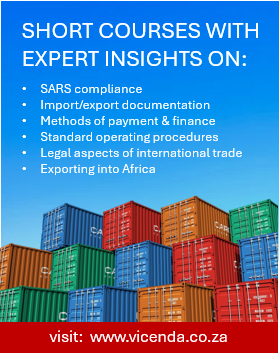Africa has always been rich in minerals, talent and potential, yet for decades our continent played almost no role in the value chains built from our own resources. We produced the raw materials, we consumed the finished goods, but we were excluded from the actual production process. Today, that cycle is shifting.
There is a clear and deliberate push to build industries that allow African economies to benefit from what we create, not just what we export.
Across the continent, we are seeing encouraging signs of progress. Ports such as Lagos Deep Sea Port, Bagamoyo, Lamu and the Durban dig-out development are strengthening maritime capacity. Rail corridors like Angola’s Lobito line, the Kenya–Uganda modern railway and Senegal’s Dakar–Mali line are shortening cargo lead times and opening inland economies to global markets.
Major road routes, including the Abidjan–Lagos Highway and segments of the Trans-African Highway network, are bringing economic centres closer together. And in the skies, Ethiopia, Kenya, Egypt and Rwanda are expanding cargo terminals and cold-chain capacity to support high-value exports. These projects are not just infrastructure upgrades; they are the backbone of Africa’s next phase of industrialisation.
At Bidvest International Logistics, we see firsthand how every upgraded route or facility makes regional integration feel less aspirational and more achievable. And it’s why I remind my teams that “Africa’s progress lives in the small, consistent improvements we overlook,” because those small wins are what slowly transform a continent and make the promise of the African Continental Free Trade Area (AfCFTA) feel real.
The AfCFTA connects 55 African countries into a single market, reducing tariffs, encouraging localisation and enabling supply chains that allow African businesses to trade with each other far more easily. Each region of our continent holds unique resources: gold and lithium in the south, oil in the west, agriculture and energy potential across the east and central regions. When we trade across these strengths, we stimulate actual industrial growth. Sectors such as logistics, manufacturing, engineering, mining, FMCG, healthcare and automotive all stand to benefit.
Africa’s young population positions us for a powerful future, but only if we align our mindset with our potential. As I often say, “We need to view African-made goods as a patriotic mission, not just for our countries but for the continent as a whole.” Quality, innovation and collaboration must define this new era. We cannot aim to produce the cheapest alternative to imports; we must create competitive products that reflect the best of African capability.
If the AfCFTA is implemented effectively, we could unlock a projected 450-billion-dollar boost to Africa’s GDP by the mid-2030s and reposition the continent as a confident, self-reliant global force. But this will not happen automatically. It requires coordinated effort across governments, private-sector players, and development institutions. It also requires modern logistics infrastructure, harmonised standards and a digital ecosystem that allows businesses to operate seamlessly across borders.
With deliberate action, integrated supply chains and a commitment to building here at home, Africa can finally participate fully in the value it creates. The future of intra-African trade is ours to build, and ours to benefit from.

By Tebogo Mpanyane, Africa Manager, Bidvest International Logistics








